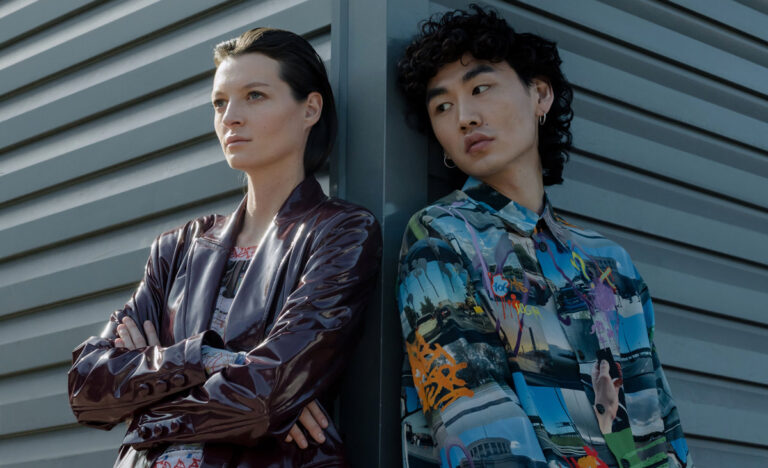Men have to buy the ring and women shouldn’t make the first move: introducing the ‘Romance Gap’
Have you ever wondered why it’s ‘passionate’ when he admits his feelings in a heterosexual relationship but when you do the same, it’s ‘needy’? Or when he doesn’t text you back he’s ‘playing it cool’ but if you don’t—you’re playing ‘hard to get’? You might not have heard of this term before but you’ll definitely know the feeling. Introducing the ‘Romance Gap’, an unexamined factor limiting all of our relationships by making it difficult to build healthy and meaningful connections.
What exactly is the Romance Gap?
Coined by the dating app Bumble, Romance Gap refers to “the discrepancy in behaviour expected from male or masculine presenting people and female or feminine presenting people when dating and in relationships.” It resembles the pay gap, but for your love life. Women wait for their male interest to ask them out while men are expected to go in for the first kiss and eventually buy the ring. You feel feisty when you’re honest, desperate when you want commitment and spend hours debating how many heart emojis are too many.
Now, you may feel like we’ve already crossed this bridge and challenged all these gender norms. However, the polls are in and the results are shocking proof of how the Romance Gap continues to define traditional expectations in our dating lives today.
In a new campaign, Bumble commissioned a research which found that while 86 per cent of British people state equality as an important factor between those who are dating or in a relationship, almost 74 per cent believe that there are different expectations and ideal behaviours based on your gender identity in romance. The study, conducted by YouGov across several key European markets, also uncovered that these expectations are, in fact, so ingrained into our society—leading 52 per cent of adults to believe the impact of gender roles makes people behave in a way that is less true to who they are. Not only does this lead to less authentic interactions, but 47 per cent of people throughout European countries, and 51 per cent in the UK, stated that it makes dating and relationships even more stressful and difficult.
The train of revelations doesn’t stop there either. In the research, one in four men admitted that they feel pressured to take the lead—while 33 per cent of women felt that they’ve changed their behaviour to make someone else feel more powerful or comfortable in a relationship. In the UK, 53 per cent of participants also believe that men are expected to be the breadwinners. These figures stand at 42 per cent when it comes to the claim that women are expected to prioritise romantic relationships and settle down before they are ‘too old’—ultimately implying the belief that women have a ‘shelf life’ in the world of dating.
It’s time to drop the script
Despite relationship anarchy and platonic marriages redefining the gender dynamics in relationships, Bumble’s research sheds light on how traditional roles continue to grip our dating lives today and are even accepted by many. It’s also important to note that when romance starts from a place of gendered inequality, it could often have an overarching impact on other aspects of our life.
For starters, traditional gender norms don’t just influence how we behave, but also how we think—including our perception of what is romantic, sexy and attractive in a partner. Given how the foundation of most relationships are formed within the first few months, areas like money, childcare and the division of emotional labour are also at risk of being influenced by gender expectations as time evolves.
“At Bumble, we are focused on creating an app that empowers women to make the first move and date on their own terms from the beginning. But we alone cannot change societal expectations,” said Naomi Walkland, Bumble’s Vice President for Europe. But not all hope is lost.
“The only way to reduce the Romance Gap is to acknowledge it exists and start an open conversation about how it impacts how we see ourselves, our partners, and relationships,” Walkland continued. “Only when we are aware of it can we challenge each other to do away with gendered expectations of who should do what.”
This desire for change even translates into statistics, as the research uncovered how people in the UK strongly believe that, in an ideal world, we would not have expectations about who earns more money (58 per cent), has a more successful career (55 per cent), or who makes the first move by initiating a date (49 per cent). Meanwhile, more than three in five British people claimed that it is key to be confident in expressing who you are and what you want. Half of the women interviewed in the study also stated that it’s important to address the topic of equality pretty early on in their dating lives.
Backed with the mission to build a space where women have the autonomy to set the tone and choose when and how to open the conversation, the Romance Gap is Bumble’s latest campaign to empower people into creating healthy and equitable relationships. So what are you waiting for? Now that we have a name for it, it’s easier to acknowledge and change the narrative once and for all. Start dating on your own terms. Show your true self and instead of making compromises, ‘make the first move’. Or don’t—you have the ultimate power to decide what’s best for you and what’s not.





